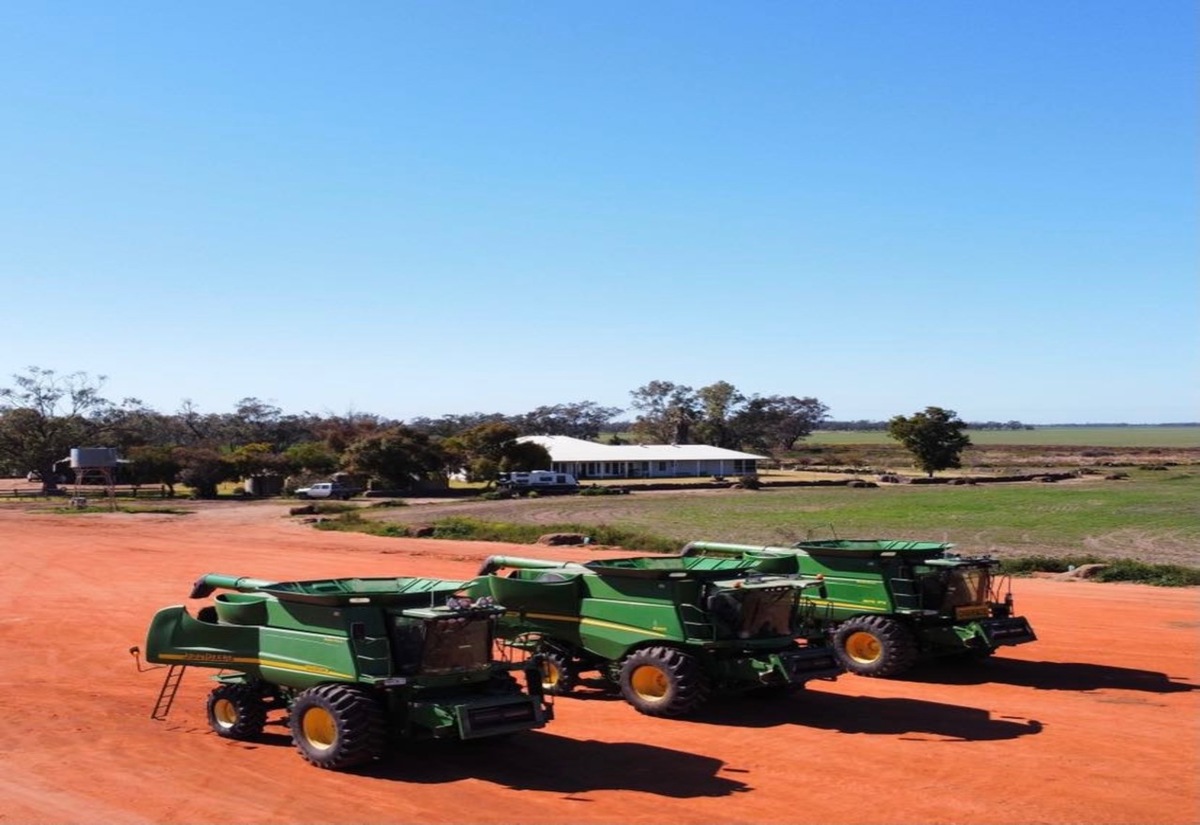Harvest in danger from staff shortages
Laura Williams
21 October 2021, 9:47 PM
 The Harris family is geared up to start harvest, all they need is people.
The Harris family is geared up to start harvest, all they need is people.The agriculture industry is in crisis as harvest efforts are continuing understaffed, following an unprecedented worker shortage in the region.
From on-farm work to grain processors and trucking companies, it seems every piece of the harvest puzzle is working overtime and understaffed, forced to continue without sufficient staff.
North-West farmer Fletcher Harris says that filling harvesting jobs this year has been near impossible. While the Harris' generally employ an additional six to seven workers during harvest, this year, they could only secure four.
“Last year was bad, but not as bad as this,” says Fletcher.
While closed international borders have dried up the usual pool of backpackers who are available to work, local workers who hold the monopoly are demanding higher wages from farmers.
“Wages are always going to go up, but right now we’re having to pay $30 an hour for an unskilled worker who we have to train to sit on the tractor,” Fletcher said.
Alternatively, rates for skilled harvest workers are hovering at around $50/hour, according to Fletcher. The price tag is unsurprisingly unattainable for most farmers.
Usually, the Harris’ and other large scale producers source their harvest workers from students at the University of New England. This year, the recruiting efforts have returned empty-handed. Instead, social media has been the only way they’ve been able to find staff.
For many farmers, the threat of bad weather ruining the crops means that there is no affordance for letting harvest drag out any longer than necessary.
“We’ll all just be working a bit harder this year,” Fletcher said.
Across the plains, Fletcher’s cousin Mark Harris is preparing for a similar battle. Unable to control the impacts of shortages in trucking and grain processing, the large-scale producers are increasingly becoming self-sufficient.
An arsenal of bunkers, trucks, headers and chaser bins are slowly being accumulated, unable to afford time lost to external issues.
“We won’t be slowing down regardless of staff. That’s not how our family operates,” Mark said.
The staff shortage isn’t isolated to the Western Plains and isn’t just on farms.
Coonamble truck driver and owner John Jackson said that a lot of haulage companies are struggling to find truck drivers to meet the demands of harvest.
“I’m going to have to park one truck up this season because we just don’t have enough drivers,” Mr Jackson said.
The lost earning capacity of one truck is dramatic, potentially around $100,000.
Besides border closures, Mr Jackson says that work in the mines has been drawing workers away from the agriculture industry.
“The big mines are paying big money. Farmers can’t afford to pay that kind of dollar out here,” Mr Jackson said.
Further south, the issue remains the same.
Lake Cargelligo based grain trader Craig Tyack predicts that the season will move much slower than normal, despite longer hours from farmers.
“Everybody is working to avoid rain ruining harvest and wants it to be done in a hurry, but you can only do what you can do,” said Mr Tyack.
Farming organisations are calling the government to reassess quarantine requirements for international ag workers to combat what is due to become a long and complicated season.
With some headers already in motion across the region, the damage may already be done.